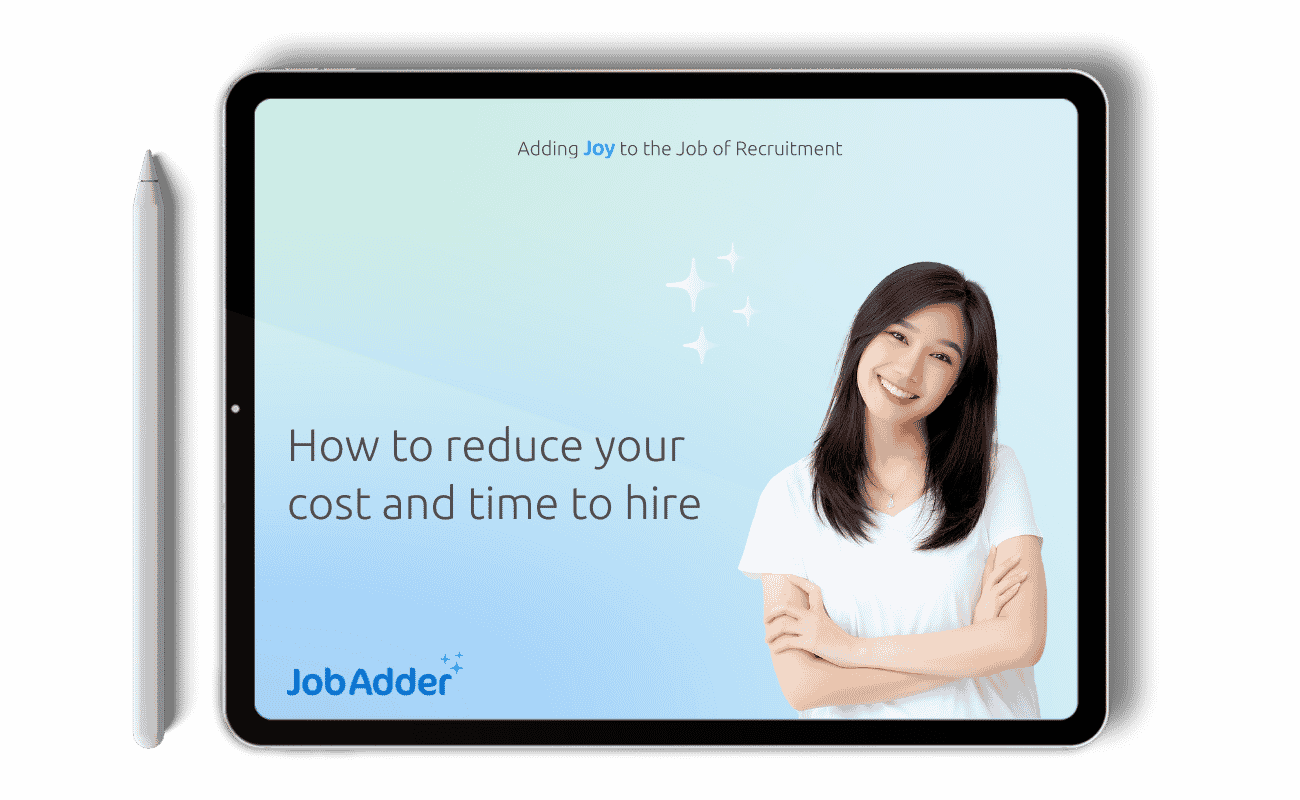Understanding what reference questions are most helpful before hiring your candidate can be the difference between getting an excellent new employee or having tons of trouble down the road.
Not all reference check questions are created equal, and it’s essential for every recruiter or hiring manager to do their due diligence during the reference check process before extending a job offer.
There are specific questions that you should ask colleagues or managers about their former employees and several templates to use to make the interview process easier. Since employees will often use their best reference on the application, it’s up to you to look for clues.
Although the hiring process can seem to drag out, it’s imperative that you put effort into this part of the hiring process to delve more into the employee’s character, work ethic and what they can bring to the table.
We’ve devised a list of informative and essential questions, as well as other onboarding tips that will make the hiring process as smooth as possible.
FREE EBOOK: How to reduce your cost and time to hire
What is a reference check and why are they important?
Reference checks involve contacting previous employers or managers to gather insights for effective hiring. Tailored questions assess cultural fit, strengths, and challenges, offering a comprehensive view of candidates. By tapping into both personal and professional references, you gain a holistic understanding of their abilities.
Candidate reference checks provide valuable insights when it comes to making hiring decisions, offering a multi-dimensional view of a candidate’s fit. Strategic inquiries about problem-solving and interpersonal dynamics enhance understanding, while engaging varied references expands perspectives beyond interviews. References bridge the gap between narratives and the on-the-ground reality of a candidate’s performance, revealing their true potential.
7 essential reference check questions
These seven reference check questions are only the start. Feel free to delve into them more if the situation calls for it. They’re designed to open up dialogue and make the other person think outside the box a bit.
1. Tell me about how you and the candidate worked together.
This question will give you an understanding of the candidates’ dates of employment and also what their job title entailed. Additionally, you’ll learn about how the prospective employee deals with other people in the office and what red flags you should look out for. Open-ended questions are absolutely key.
2. For the following position, we require someone who can __________ [include important features]. How would you rank the skills of the candidate for each?
This question gets down to the nitty-gritty of the reference check and allows you to get some actionable information about how the employee will perform at your company. You’ll also learn how much you’ll need to train them on various things. Asking the reference to rate the candidate’s skills and competencies on a scale of 1-10 is a great way to assess the candidate’s strengths and weaknesses.
3. Can you give me an example of a setback or stressful challenge this individual faced and tell me how they dealt with it?
While the candidate might present themselves glowingly in their job interview, there’s always a darker side to things. This question allows you to drill into the candidates’ skills and work ethic, as well as how they perform under pressure. It also allows you to assess their dependability, which is crucial for any job with strict deadlines.
4. When working with you, what was their biggest accomplishment?
This reference check question flips the previous one on its head and allows the reference check to talk about what makes the candidate special. You’ll learn more about what matters to them and what sort of projects they excel in. This will help you with onboarding and training.
5. In your experience, does this candidate work better alone or with a team?
In almost every job, it’s essential to have employees that work well with team members. Being a team player and being a cohesive unit geared towards hitting goals are both excellent skills. You’ll want to assess the candidate’s team member communication skills and get an idea of how well they can keep their temper if something goes wrong.
6. Would you rehire this candidate?
Asking this question will tell you almost everything you need to know about your prospective candidate and how they function in a group environment. Although many references will give you spectacular reviews of the candidate, the question of whether or not they would rehire them speaks to the impression the candidate had when they were there and how they left. Never let it be a closed “yes or no” question. Instead, ask follow-up questions to dig deep.
7. Is there anyone else you’d recommend I speak to?
One of the most integral parts of the reference check process is seeing who else you can speak with. Candidates will often only give references that they assume will give them positive reviews, but there could be other people who can give you better and more unbiased insights.
5 questions about work ethic and experience
To fully understand the candidate’s experience and ethics, you’ll want to include lots of questions about a candidate’s work ethic and experience. These questions are especially vital if you’re working in a sensitive field or with classified information. Good questions could include:
- Did this candidate have to deal with sensitive information, and how did they handle it?
- How well did they communicate with and respect their coworkers?
- Was the candidate able to properly prioritise and manage multiple projects?
- Did they get any accolades that you know of when you were there?
- What terms did the candidate leave your company under?
6 additional character questions
During the job interview, there’s a great chance that the candidate will position themselves as someone with a stellar character and a good working style. The best recruiters and hiring managers know that what you get in the interview may not be what you’ll get when they’re actually working for you. That’s why character questions are so important, including:
- How did the candidate work within your company culture?
- Were they respected at work, did they have strong working relationships?
- What environment would you say works best for the candidate? Why?
- On a scale of 1-10, how would you rate working with this candidate?
- What would you say are the best elements of this employee’s character or the worst ones?
- Can you cite examples where the candidate’s character shone?
7 reference questions to ask about a former supervisor
If you’re hiring someone for a managerial position, understanding what they were like as a former supervisor is integral to learning if they’ll gel with your team. There are several red flags that could indicate signs of toxicity in a potential manager, including the tendency to micromanage and temper tantrums.
Sometimes people are reluctant to talk about their former supervisors, especially if the job environment wasn’t good or they’re afraid of them. Always ensure that anonymity will be respected, and take signs of reluctance as red flags. These reference check questions could include:
- What was the candidate’s management style like?
- How was the work environment overall? Did people enjoy coming to work?
- What was the turnover like in your department?
- Did you feel valued by your former supervisor?
- What were the bests aspects of this person’s leadership? What were the worst ones?
- Did this person explain the job appropriately?
- What sort of feedback did you get? Was it regular and constructive?
6 questions to ask for personal references
Personal references will give you plenty of insight into your candidate’s character and often supplement professional references to let you see the bigger picture, letting you see them as people beyond their work history.
Often entry-level candidates and those outside the workforce for extended periods will not have lots of professional references. Personal ones are fine too, and you can find out a lot if you know the right questions to ask, including:
- How do you know the job candidate?
- What would you say are their strengths? What are their weaknesses?
- Do you trust the candidate? Why? What would you trust them with in terms of money, children, pets or your home?
- When have they helped you in your life? Have they ever let you down?
- How do you see the candidate fitting into this role?
- Have you two ever worked together? What was your relationship?
What to keep in mind during a reference call
Understanding what types of questions to ask references for a job candidate can be stressful, but fortunately, there are some things you can keep in mind during your reference call to keep things both productive and legal.
Asking the right questions to look for red flags and core competencies is important, but it’s also essential to avoid reference call questions that could be viewed as discriminatory.
While learning about the employee’s job performances and working relationships with managers and colleagues, you’ll want to steer clear of anything that focuses on their sexuality, religion, race or age. These questions could include things about when they graduated from high school and if they took off for various religious holidays.
Remember, keep it all above-board, job- and competency-focused and professional.
Frequently asked questions
What not to ask in a reference check?
Avoid asking questions that could lead to discrimination, such as those related to age, gender, marital status or ethnicity. Additionally, refrain from prying into personal matters that aren’t relevant to the candidate’s job performance.
What are the red flags on a reference check?
Red flags during a reference check might include reluctance from the reference to provide substantial information, contradictions in the reference’s responses, or negative comments about the candidate’s work ethic, punctuality or team collaboration.
How do I prepare for a reference check?
Before a reference check, review the candidate’s resume and job application to understand their skills, experience and achievements. Develop a list of specific questions to ask references about the candidate’s performance, strengths, areas of improvement and teamwork abilities.
What questions to ask for a reference check for a consultant?
For a consultant, inquire about their problem-solving skills, adaptability to different projects, communication with clients, ability to meet deadlines and how effectively they work within a team or independently. Ask references to provide examples of successful projects and instances where the consultant showcased their expertise and delivered value.
Hire the right talent for your team with JobAdder
By conducting proper reference checks and doing your due diligence as the recruiter or hiring manager, you’ll be able to quickly and effectively vet your candidates and hire the best talent for the job. In addition to looking them up on social media and doing a background check, reference checks provide pieces of the puzzle that you won’t get from the interview itself.
Make the hiring process easier with a good Applicant Tracking System (ATS), where you can keep track of all the elements of your hiring and onboarding and ensure that applicants are having a positive candidate experience.
Ready to cut your cost and time to hire? Discover our top tips.






